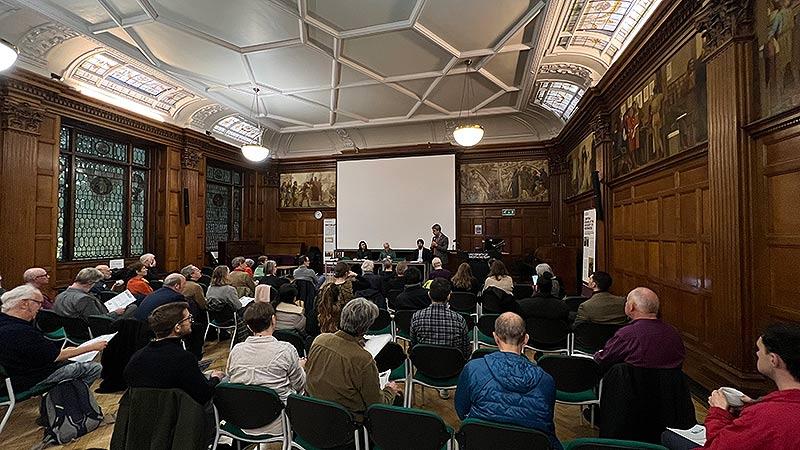On 18 November 2022, a workshop concerning the possible large-scale retrofitting of social housing took place at the University of Westminster.

The aim of retrofitting, in the context of housing, is to reduce carbon emissions and energy consumption through a combination of insulation to prevent heat loss and the installation of renewable energy sources such as solar panels and air or ground source heat pumps.
The workshop, which can be watched online, brought together representatives from local government, unions, employers, architects and educators to discuss how retrofitting social housing could address astronomical increases in energy bills and help tackle climate change. In particular, the workshop focussed on social housing in the London boroughs of Camden, Islington and Wandsworth.
The urgent need to combat climate change and address the energy and cost of living crises presents an opportunity to develop a new retrofitting strategy, one that goes together with improving social housing and transforming the construction industry into an inclusive eco-sector with good employment and working conditions.
The first session considered the current social housing situation with Councillor Aydin Dikerdem, Cabinet Member for Housing at Wandsworth Council; Councillor Diarmaid Ward, Deputy Leader and Executive Member for Finance, Planning and Performance of Islington Council; and Sim Dhinsa, programme manager for the Retrofit programme for Camden Council. Each spoke of the funding problems and what they are doing to address these and develop retrofit programmes. Examples included:
- pilot schemes
- the insourcing of repair and void services
- setting up a network for women in construction
- using procurement to ensure good quality training and apprenticeships
- developing a public retrofit task force
A project by Cullinan Studios was then presented, which investigates how the district heating network scheme, which extracts hot air from the underground to provide cheaper and greener heating to 800 homes, could be extended across Islington.
The second session focused on the construction sector, including an overview of Unite the Union’s approach to retrofitting, which includes establishing a North-East Yorkshire & Humber (NEYH) Retrofitting of Homes Taskforce, a national Environment Taskforce, and an Environment Charter. The Electrical Contractors Association followed, emphasising the development of training schemes, including the introduction of environmental aspects into the new Domestic Electrician Apprenticeship. Finally, Fran Bradshaw from Anne Thorne Architects described the importance of design and construction collaboration in the retrofit project to Passivhaus standards for the North London Housing Coop.
The third session then considered the Vocational Education and Training (VET) system and what needs to be done by Further Education Colleges to prepare young people for large-scale retrofit programmes, including through the Green Skills hubs of the London Mayor’s Academy Programme.
The workshop ended with a panel discussion, drawing together the three strands of the programme and debating what a successful large-scale retrofit programme might look like, focusing particularly on the Camden, Islington and Wandsworth local authorities.
Its success was in providing a platform for exploring how local communities can work together to develop a social and labour-centred approach to retrofitting, one that provides proper training and future employment for young people and good quality, low-energy housing. It showed how retrofitting and improving the quality of social housing go together with transforming the construction VET system, the construction labour process and employment relations and that the first step in achieving this is to set up retrofit taskforces in each local area.
Find out more about Construction, Surveying and Real Estate courses at Westminster.



